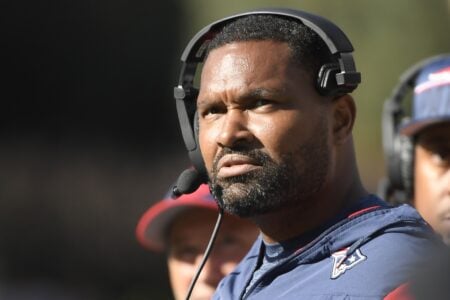upstater1
Hall of Fame Poster
- Joined
- Nov 29, 2005
- Messages
- 26,619
- Reaction score
- 16,893
Despite the name of the penalty, the QB's intent actually doesn't come into play at all. The rule (see my earlier post) makes no reference whatsoever to the QB's intent. It only says that it's IG if a QB, facing an imminent loss of yardage due to defensive pressure, throws the ball nowhere near an eligible receiver. What the QB was thinking or intending doesn't enter into it.
First, what is near a WR?
Don't you have to determine whether he tried to throw it near? As soon as you do, you are gauging intent.
Second, how do you know where a QB intends to throw it when he's being dragged down by a defender?


















